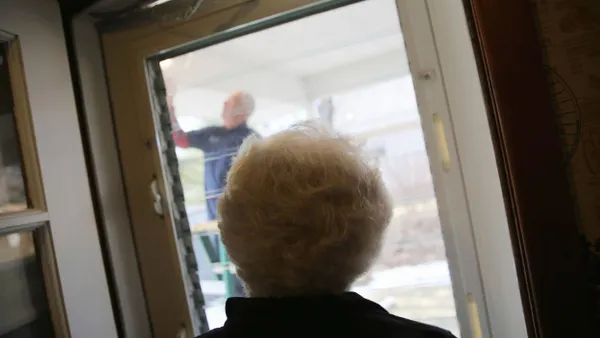Dive Brief:
- A controversial energy bill being considered in Oregon's legislature has been amended in the Senate, giving more authority to the state's utility regulators to protect consumers from potential cost increases.
- House Bill 4036 would eliminate coal imports to the state and support a 50% renewable standard by 2040. It was passed in the House by a vote of 39-20, but Senate lawmakers amended the bill after a series of news stories highlighted concerns from utility regulators that they were not consulted on the bill.
- Oregon Public Utilities Commission Chair Susan Ackerman has since said that stories depicting a breakdown in communication between lawmakers and regulators were generally overstating the situation, but she still opposes the legislation.
Dive Insight:
Oregon lawmakers continue to work on a measure to ban coal imports and boost renewables, but the situation became more complicated this week when the Senate passed an amended version.
The House passed HB 4036 last week, at about the same time The Oregonian reported on how the bill was created, including email chains that appeared to show the state Public Utilities Commission struggling to provide input. While initial news stories characterized the state's governor as shutting regulators out of the process, PUC Chair Ackerman has said that wasn't the case. She still opposes the rule, however.
Ackerman said there were "communications miscues," but told The Oregonian it "is simply not the case" that Gov. Kate Brown (D) had shut the commission out of discussions.
The amended version, introduced by Sen. Lee Beyer (D), would give the PUC authority to intervene if the new energy policies are not cost effective.
"It essentially balances it, making it certain the PUC continues to be the watchdog," Beyer told The Oregonian.
Ackerman and other commissioners have expressed concern that out-of-state coal plants will continue to operate, meaning Oregon's actions would have no impact on emissions, and the renewables mandate needs a cost-effectiveness test attached to it.
"This bill is absolute crap ... a shell game that will result in no actual emissions reductions and higher rates for Oregon customers," Commissioner John Savage, the longest-serving regulator at the PUC, wrote in January to a regulator in another state, according to the emails published by The Oregonian. "And then the utilities get to stuff our decisions they didn't like down our throats."
The deal is attracting attention for utility regulators around the country. Montana commissioner and NARUC President Travis Kavulla criticised the bill in an interview with Utility Dive.
"Perhaps peoples' intention in supporting it are about decarbonizing the fleet but that's not what it actually does," Kavulla said. "What it actually does is commandeers utilities to build more renewables and some electric vehicle charging infrastructure and says to them 'Listen you can't import your coal power into Oregon after a date certain.'"
One thing that is "amazingly" missing from the bill, he added, is a requirement for the utilities to shut down their existing coal capacity, which exists out of state in Wyoming and Montana.
Last month, PacifiCorp and Portland General Electric reached a compromise with environmental advocates. The utilities agreed to support HB 4036 if environmental groups dropped their push for a ballot initiative on a more stringent reduction in coal generation. PacifiCorp believes its plan will save $600 million by 2030; Portland General Electric said its own plan could save between $220-$360 million over the next 25 years.














